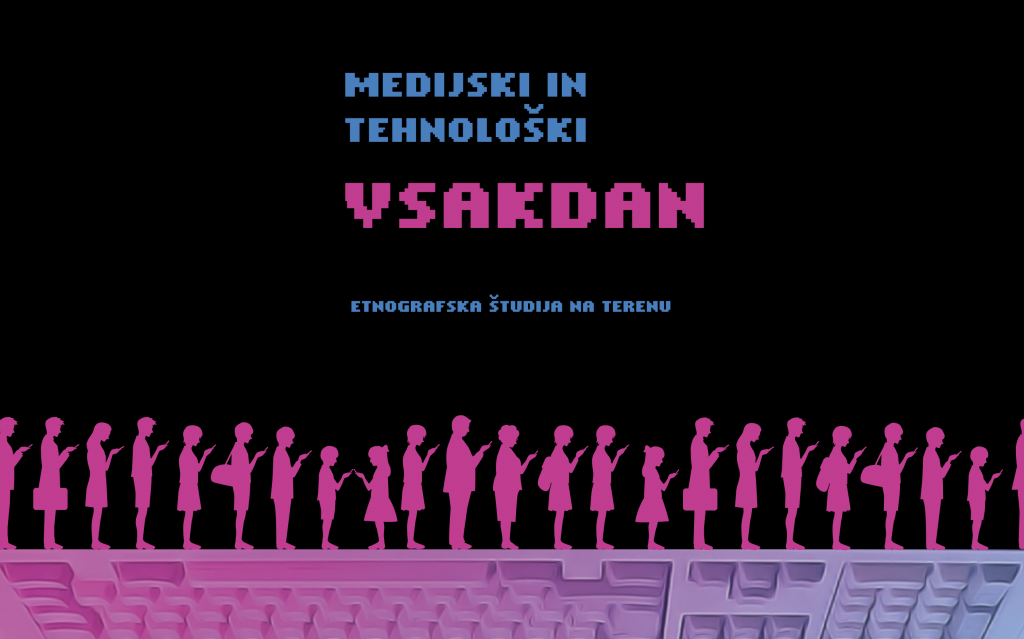Everyday Media and Technology: An Ethnographic Field Study
Which media and technologies are most present in everyday life today? How do they intertwine with daily routines? What kinds of social relationships are built through modern technology? How do we establish them? With whom and in what circumstances? How does digital technology accompany individuals throughout their lives? What kinds of media events and practices are young people creating through the media channels that appeal to them the most?
The RSF project is one of the pilot projects “in the field of implementing research-based curriculum approaches,” funded by the University of Ljubljana. The research is also part of the fundamental research project Media Repertoires of Youth (ARRS, J5-2564).
Mentors: Prof. Dr. Tanja Oblak Črnič, Assistant Katja K. Ošljak, and Gaja Zornada.
University of Ljubljana, Faculty of Social Sciences – Chair of Media and Communication Studies in collaboration with the Computer History Museum Slovenia.
Research projects: Heavy TikTok Users and Everyday Practices (Nika Toporiš, Gal Kranjčič, Mitja Bergoč), Expressing Musical Identity of Youth Through Story Sharing on Instagram (Ajda Lah, Simon Poles, Lara Mlakar), Staying Connected – Seniors’ Perspectives on Screen Engagement (Amanda Buhinjak, Alipa Kasjak Gutman, Nika Vajnhandl), Screen Time Together? – Family Technocultures (Špela Pečlin, Tara Podedenšek, Klara Gazvoda), Archiving Memories on Social Media (Helena Fajfar, Ema Petan).
From November 2022 to the end of January 2023, students enrolled in the elective course Ethnography of Digital Media, part of the master’s program in Communication Studies – Media and Communication Studies at the Faculty of Social Sciences, built upon insights from the literature through independent reflections. They developed pilot research projects using an ethnographic approach to contemporary digital technologies of various kinds.
They focused on the everyday technological uses of selected social groups through a qualitative approach that enables a detailed analysis of media practices, experiences, and relationships with media, as well as the investigation of media events in the field.
The ethnographic method requires monitoring selected individuals or groups in the field—through in-depth observation and detailed recording of activities (for example, within families, homes, school or educational settings, online communities, etc.)—combined with intensive, in-depth dialogue with participants through personal interviews.


